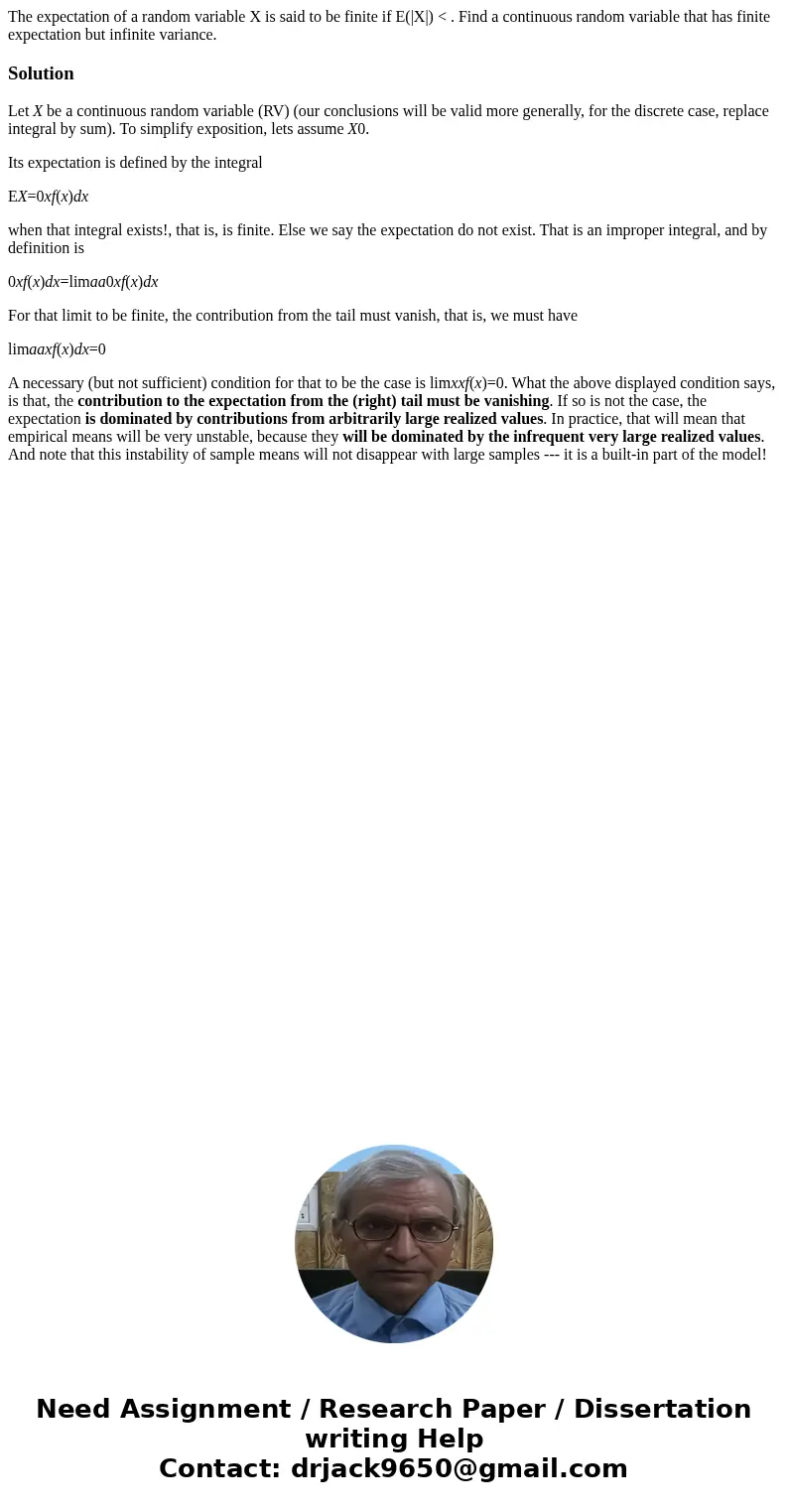The expectation of a random variable X is said to be finite
The expectation of a random variable X is said to be finite if E(|X|) < . Find a continuous random variable that has finite expectation but infinite variance.
Solution
Let X be a continuous random variable (RV) (our conclusions will be valid more generally, for the discrete case, replace integral by sum). To simplify exposition, lets assume X0.
Its expectation is defined by the integral
EX=0xf(x)dx
when that integral exists!, that is, is finite. Else we say the expectation do not exist. That is an improper integral, and by definition is
0xf(x)dx=limaa0xf(x)dx
For that limit to be finite, the contribution from the tail must vanish, that is, we must have
limaaxf(x)dx=0
A necessary (but not sufficient) condition for that to be the case is limxxf(x)=0. What the above displayed condition says, is that, the contribution to the expectation from the (right) tail must be vanishing. If so is not the case, the expectation is dominated by contributions from arbitrarily large realized values. In practice, that will mean that empirical means will be very unstable, because they will be dominated by the infrequent very large realized values. And note that this instability of sample means will not disappear with large samples --- it is a built-in part of the model!

 Homework Sourse
Homework Sourse